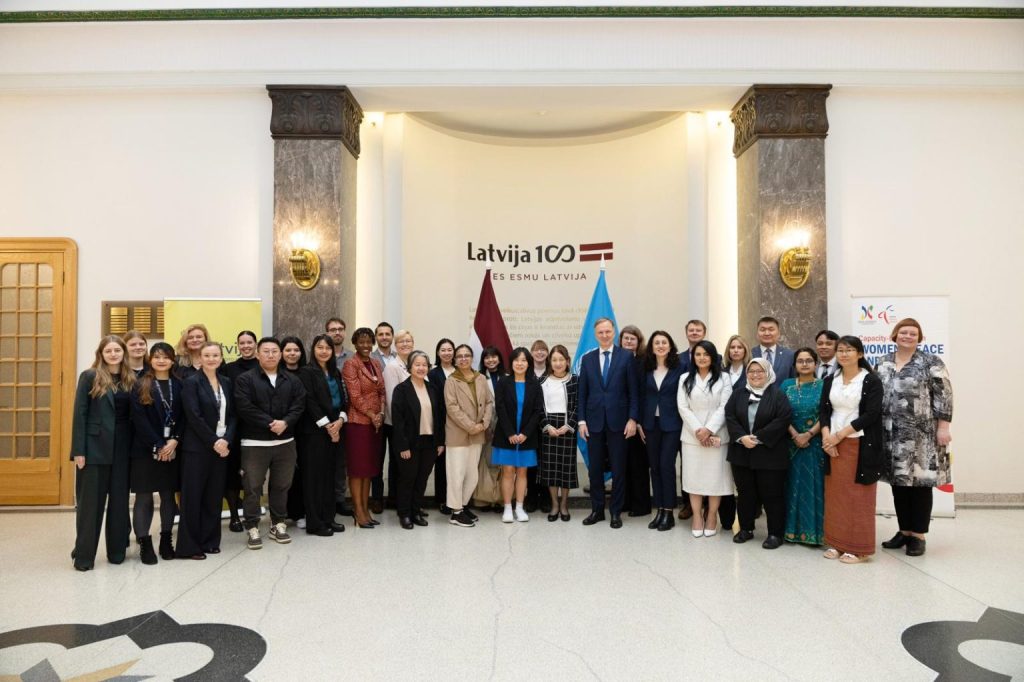The struggle for women’s rights has come a long way, with women worldwide breaking barriers to become independent, assume leadership positions, and drive change. However, the progress towards asserting and safeguarding women’s rights and claiming equal agency has often been uneven, marked by a pattern of two steps forward and one backward. Women remain highly vulnerable to prejudice and violence in their homes, and when their homes become the battleground. Gender-based violence (GBV) is particularly prevalent in events exhibiting unchecked and unjustified state power, as evident from the ongoing domestic and inter-state conflicts around the world.
ASEF’s Capacity-Building Programme on Women, Peace and Security
Against this background, ASEF held the Capacity-Building Programme on Women, Peace and Security (WPS) in Riga, Latvia, from 19-21 May 2025. Hosted by the Ministry of Foreign Affairs of the Republic of Latvia and organised in partnership with Security for Women (Latvia), programme gathered 20 junior and mid-career diplomats and 27 speakers and trainers from the ASEM member countries. The speakers and trainers – representing academia, civil society, government, and non-governmental organisations (NGOs) – discussed WPS-related issues, gender equality, GBV in conflict zones, and the imperative for behavioural changes in diplomacy to advance WPS.
The programme commenced with the heartfelt opening remarks by Latvia’s Minister of Foreign Affairs, H.E. Baiba BRAŽE. Minister Braže highlighted the strides in women’s rights worldwide while acknowledging the prevalence of gender inequality, the need for more international collaboration and training on WPS issues, and greater participation of both women and men in the WPS initiatives. While providing an overview of the WPS agenda on regional and international organizations, the Head of Taskforce for Equality, European Union, Julia KOCH-DE BIOLLEY, reiterated the need for women’s participation in peacebuilding, which she claimed goes beyond symbolism and is consequential for sustainable peace. She also stated that progress requires bold and inclusive language that, even if imperfect, resonates with real lives. Additionally, the Head of International Organizations and Human Rights Department, Latvia’s MFA, Katrina KAKTINA-KALNINA, impressed upon the participants the significance of quiet diplomacy and collaborations with NGOs in human rights matters.
Addressing Gender-Based Violence in Conflict Zones
The following day was dedicated to deliberations on GBV in conflicts and ways to address it. Special Envoy for the Indo-Pacific, Ministry of Foreign Affairs of the Republic of Poland, Witold SOBKÓW, contextualized GBV in Taliban-ruled Afghanistan by reflecting on various social, economic, political, and cultural factors that continue to hamper women’s rights and gender equality in Afghan society. These include male guardianship of women, forced and child marriage, sharia law, lack of development, and geopolitical calculus, among others. Building on this, Mitra TANOMAND, Visiting Research Fellow at the Raoul Wallenberg Institute, discussed the critical role of Women Protection Centres (WPCs) in offering refuge and support to those fleeing violence in Afghanistan. The conversation then shifted to Latvia, where Iluta LACE, Head of the Board at Crisis Centre MARTA, shared insights into the Centre’s advocacy work. She highlighted its efforts to provide social, legal, and psychological assistance to women in vulnerable situations. Dr. Soumita BASU, Assistant Professor at South Asian University in India, represented the South Asian perspective on addressing GBV. She highlighted the regional countries’ domestic and global commitments to WPS. More importantly, she drew attention to understanding the relevance of WPS and women’s involvement in peace and security.
Diplomacy for Peace: Integrating Gender Perspectives in Conflict Resolution
On the final day, speakers reaffirmed the significance of international frameworks on human and women’s rights while exploring gender perspectives in conflict resolution and peacebuilding. Ambassador Misako KAJI, Commissioner of the International Civil Service Commission and Special Assistant to Japan’s Foreign Minister, delivered a comprehensive overview of the international history of human rights. She highlighted the significance of United Nations Security Council (UNSC) Resolution 1325, the first to explicitly recognise women’s role in peace and security. She also addressed the ongoing challenges and shared best practices for ensuring inclusive training within the UN’s diverse workforce. Furthermore, the role-playing scenarios simulating international negotiations offered particularly valuable insights, echoing the fundamental importance of diplomacy in advancing women’s rights and gender equality. In the concluding session, panellists discussed the behavioural shifts required in diplomatic practice to cultivate a more inclusive, collaborative culture—one where peacebuilding serves as the foundation of diplomacy.
The programme concluded with a call to action: speakers urged diplomats to be active listeners, to recognise the emotional labour inherent in diplomacy, to demonstrate ethical courage, and to lead change with purpose rather than merely following process, even when navigating resistant systems.
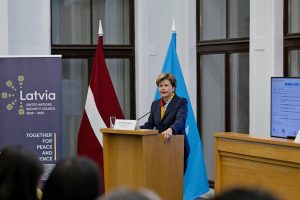
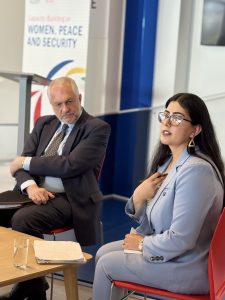
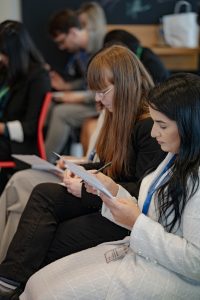
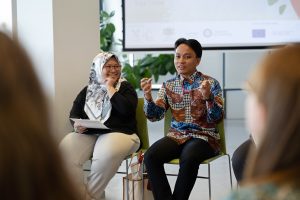
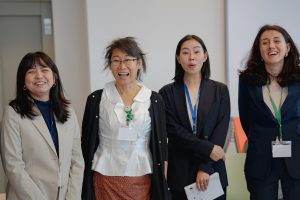
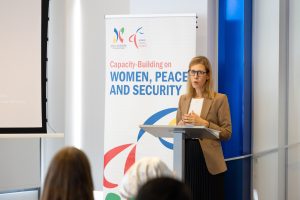
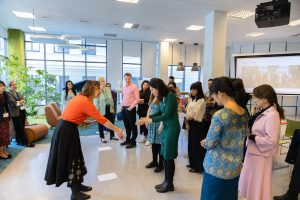
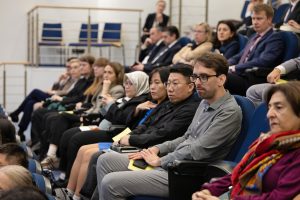
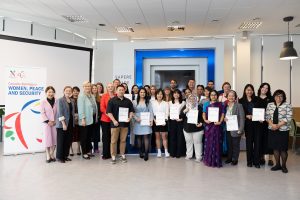
See pictures from the event here. (Photo credits to Laura Celmina, Latvian MFA)
Thank you to the European Union for its financial support, as well as to the Ministries of Foreign Affairs of Poland, Japan, and Slovakia for their valuable contributions.
